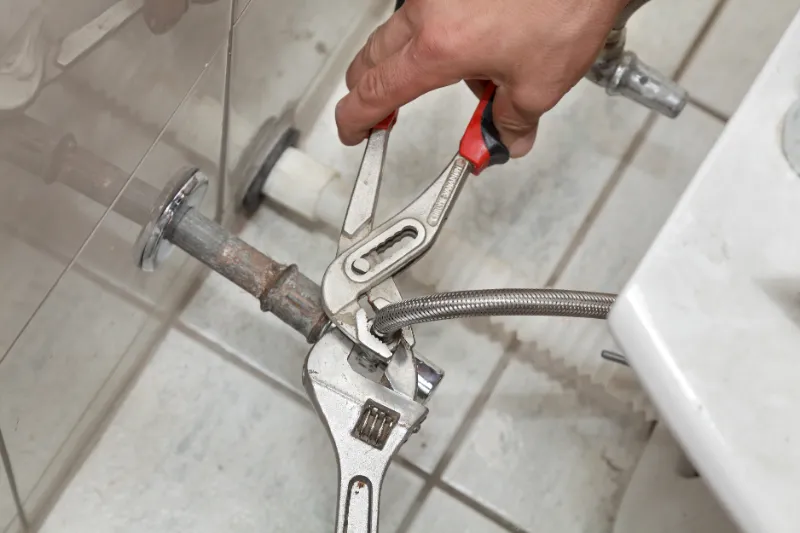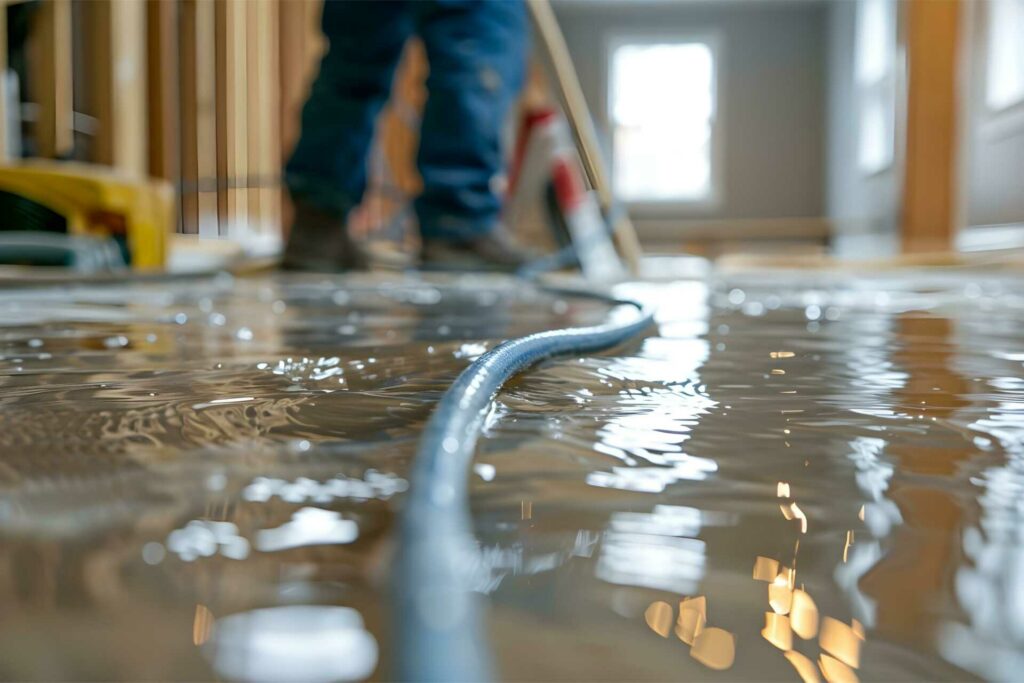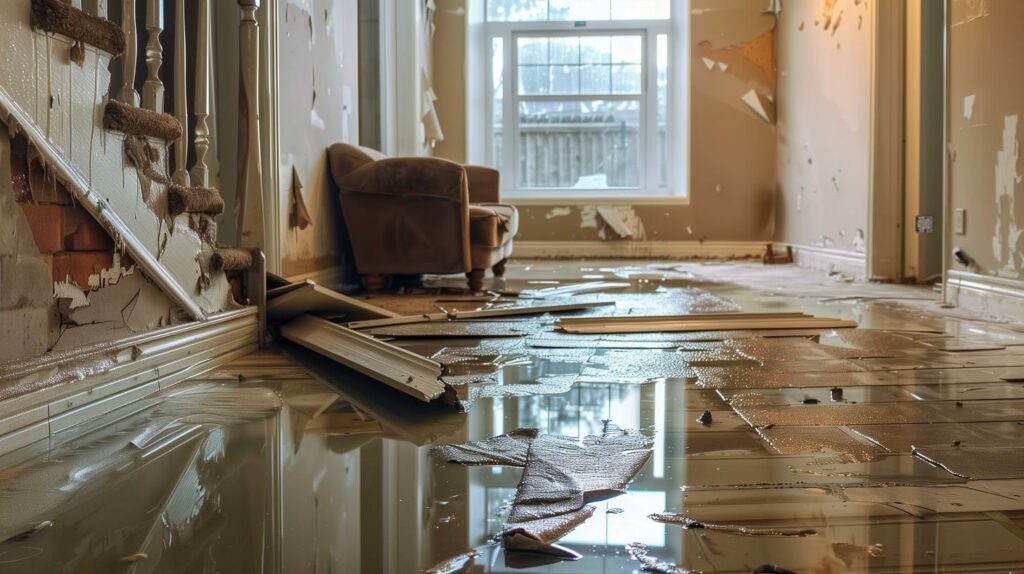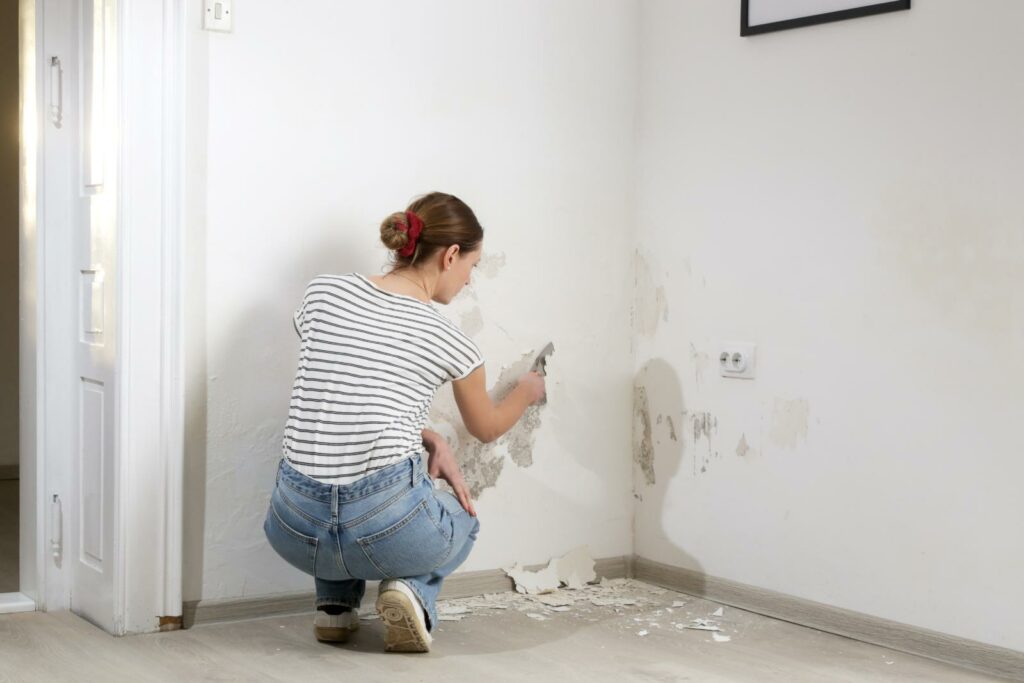Contents
Are you considering tackling your plumbing issues yourself? Before you grab your wrench, it’s important to understand the risks involved.
DIY plumbing may seem like a cost-saving solution, but without proper expertise and experience, you could end up causing more harm than good.
From costly mistakes to health hazards and voiding warranties, there are several potential pitfalls to be aware of.
Read on to learn more about the risks of DIY plumbing and how to make an informed decision.
Key Takeaways
- Lack of expertise and knowledge in DIY plumbing can lead to costly mistakes, including leaks, water damage, and structural issues.
- DIY plumbing without proper knowledge can result in major issues that require professional intervention, making it more expensive in the long run.
- DIY plumbing exposes individuals to potential safety hazards, including accidents, scalding hot water, gas leaks, and exposure to harmful chemicals.
- Incorrect DIY plumbing repairs can cause water leaks and damage, leading to structural issues and mold growth.
Lack of Expertise and Experience
Without the necessary expertise and experience, you may find yourself in a precarious situation when attempting DIY plumbing. Plumbing is a complex and intricate system that requires specialized knowledge and skills to ensure proper installation and maintenance. By taking on the task without the required expertise, you run the risk of causing more harm than good.
One of the main dangers of DIY plumbing is the potential for making costly mistakes. A small error, such as a loose connection or an incorrect pipe size, can lead to leaks, water damage, and even structural issues. These mistakes can be expensive to repair and may require the expertise of a professional plumber to fix properly.
In addition to financial risks, DIY plumbing also poses a threat to your personal safety. Plumbing systems often involve working with pressurized water and potentially hazardous materials. Without the proper knowledge and precautions, you could expose yourself to the risk of burns, cuts, or even chemical exposure. Professional plumbers are trained to handle these risks and have the necessary tools and protective equipment to ensure their safety.
Furthermore, DIY plumbing may not be compliant with building codes and regulations. Failure to adhere to these standards can result in fines, penalties, or even legal issues. Professional plumbers are well-versed in local regulations and will ensure that all work is done in accordance with the law.
Potential for Costly Mistakes
Making costly mistakes is a significant risk when attempting DIY plumbing, especially if you lack the necessary expertise and experience. Plumbing systems are complex, and even a small error can lead to major issues and expensive repairs. When you embark on a DIY plumbing project without the proper knowledge, you run the risk of making mistakes that could cost you a significant amount of money.
One of the potential costly mistakes is improperly installing or repairing pipes. If you don’t understand the correct techniques and materials to use, you might end up with leaks or bursts in your plumbing system. These issues can cause water damage to your property and require costly repairs to fix. Additionally, if you don’t have the right tools or knowledge to detect hidden leaks, you might miss them, leading to further damage and higher water bills.
Another common mistake is incorrectly installing fixtures, such as toilets or sinks. If these fixtures aren’t properly sealed or connected, they can cause leaks or water damage. Fixing these mistakes can be expensive, especially if the damage has spread to other areas of your home.
Furthermore, attempting complex plumbing tasks, like installing a new water heater or rerouting pipes, without the necessary expertise can result in costly errors. Improper installation can lead to malfunctions, leaks, or even safety hazards. Fixing these mistakes often requires professional intervention, adding to the overall cost of the project.
Increased Risk of Plumbing System Damage
To increase the risk of plumbing system damage, improper installation or repairs can lead to significant issues and costly repairs. When attempting DIY plumbing, there are several ways in which you may unknowingly cause damage to your plumbing system:
- Leakage: Failing to properly tighten or seal connections can result in leaks. Even a small leak can lead to water damage over time, causing mold growth, structural damage, and increased water bills.
- Pipe Damage: Incorrectly cutting or joining pipes can weaken their structure, making them prone to cracks or bursts. This can result in water flooding your home, leading to extensive damage and the need for emergency repairs.
- Backflow Contamination: Mishandling sewer line connections or installing faulty backflow prevention devices can cause contaminated water to flow back into your clean water supply. This poses a serious health risk, as it can contaminate your drinking water and lead to waterborne illnesses.
By attempting DIY plumbing without the necessary knowledge and experience, you not only put your plumbing system at risk but also risk the overall safety and well-being of your household.
It’s essential to recognize the limitations of your skills and seek professional help when dealing with plumbing issues that go beyond basic maintenance. A licensed plumber has the expertise to ensure proper installation, repair, and maintenance, reducing the risk of damage and costly repairs in the long run.
Potential Health Hazards
Improper DIY plumbing can expose you to potential health hazards that can compromise the safety of your household. It’s important to be aware of these risks and take necessary precautions when attempting any plumbing work yourself.
One of the main health hazards associated with DIY plumbing is the potential for water contamination. If you don’t properly install or repair pipes, leaks can occur, allowing harmful substances like sewage or chemicals to mix with your drinking water. This can lead to serious health issues, such as gastrointestinal problems or even poisoning.
Another potential health hazard is the risk of mold growth. When plumbing isn’t done correctly, it can result in water leaks, which create a moist environment perfect for mold to thrive. Exposure to mold can cause respiratory problems, allergies, and other health issues, particularly for those with pre-existing conditions like asthma or weakened immune systems.
Additionally, improper plumbing work can lead to increased moisture levels in your home, creating an ideal breeding ground for bacteria and pests. Excess moisture can promote the growth of bacteria, which can exacerbate allergies and respiratory conditions. It can also attract pests like cockroaches and rodents, which can spread diseases and contaminate your living spaces.
To protect yourself and your household from these potential health hazards, it’s advisable to hire a professional plumber who’s trained and experienced in handling plumbing issues. They have the knowledge and expertise to ensure that all plumbing work is done correctly and in compliance with safety standards. By investing in professional assistance, you can safeguard the well-being of your family and avoid unnecessary health risks.
Voiding Manufacturer Warranties
By attempting DIY plumbing, you risk voiding the manufacturer warranties on your plumbing fixtures and appliances. This can have significant implications for your budget and convenience.
Here are three reasons why voiding manufacturer warranties should be a concern for you:
- Financial implications: Manufacturer warranties provide you with the peace of mind that if anything goes wrong with your plumbing fixtures or appliances, the manufacturer will cover the repair or replacement costs. However, if you attempt DIY plumbing and something goes wrong, the manufacturer may refuse to honor the warranty, leaving you to bear the financial burden.
- Limited options for repairs: If you void the manufacturer warranty, you may be limited in your options for repairs. Authorized service providers often have access to genuine parts and specialized knowledge, ensuring the best possible repair for your plumbing fixtures and appliances. Without the manufacturer warranty, you may have to rely on generic parts and inexperienced technicians, compromising the quality and longevity of the repairs.
- Voiding other warranties: Voiding the manufacturer warranty on one plumbing fixture or appliance could potentially affect the warranties on other related products. For example, if you attempt DIY plumbing and damage the water heater, it could void the warranty on the entire plumbing system. This domino effect could leave you with no coverage and significant expenses.
Conclusion
In conclusion, tackling plumbing projects on your own without the necessary expertise and experience can pose significant risks.
Not only is there a potential for costly mistakes and damage to your plumbing system, but it can also lead to health hazards.
Additionally, attempting DIY plumbing may void any manufacturer warranties.
To avoid these risks, it’s advisable to seek professional help when dealing with plumbing issues.
You may also like: What does DIY mean in plumbing projects?




